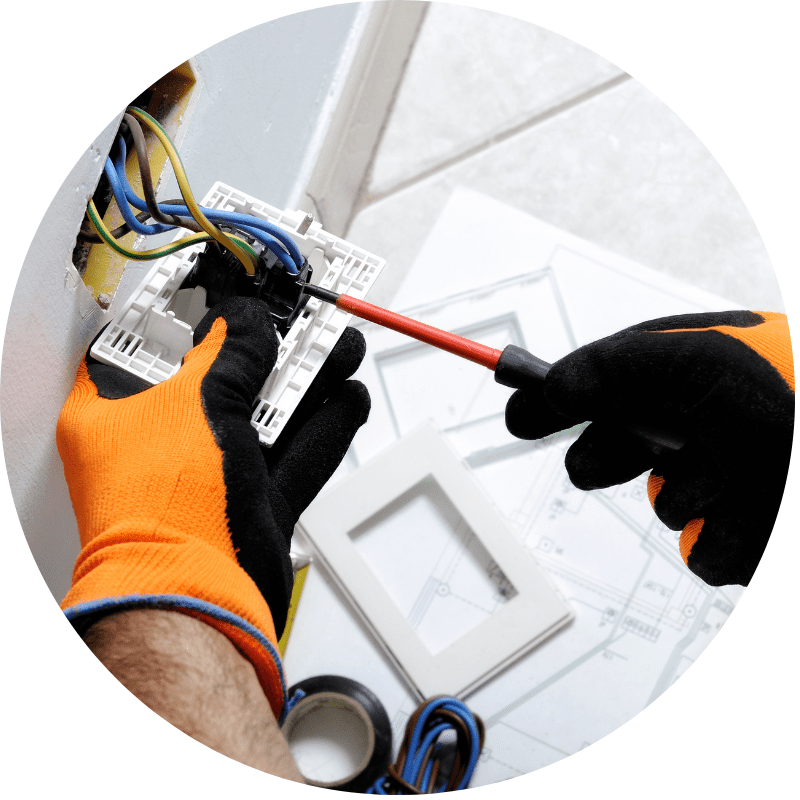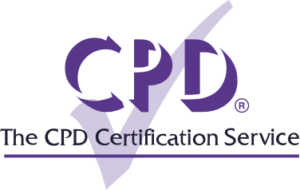In this Electricians CPD Guide
Why do Electricians need CPD?

An electrician is a skilled tradesperson who specialises in installing, maintaining and repairing electrical systems in residential, commercial and industrial settings. Without them, it would be difficult to ensure that homes, businesses and other buildings have safe and reliable access to electricity. Electricians help to keep people and property safe by ensuring that electrical systems are installed and maintained properly.
What our customers have to say
Dan King
Mobilisation, Training & Performance Manager

Sophie Aiken
HR Manager

Harriet Lee
Retail Recruitment Manager

What CPD courses do Electricians need?
Electricians often work in dangerous environments so there are many courses that we offer which are suitable for your CPD training requirements. Many of our courses cover keeping yourself safe during electrical work, as well as ensuring that your electrical installations are safe for your customers. Please see a selection of our courses below.
Assessing Risk (Risk Assessment) – in this course you will learn that it is a legal requirement to ensure the health, safety and welfare of employees. You will also explore the two main pieces of health and safety legislation, as well as the six-pack regulations that were introduced due to EU directives. For a risk assessment to be effective in reducing the risks, it must identify the hazards that are foreseeable and significant. In this course you will learn about the nine principles of prevention and how these are very similar to a hierarchy, and that more than one principle can be used to reduce the risks. Employers must consider the principles of prevention in the Management of Health and Safety at Work Regulations 1999 when controlling the risks.
PAT Testing Awareness – this course is designed for people who work with PAT (Portable Appliance Testing) equipment, which is mostly electricians. You will consider what is meant by hazard and risk and you will explore what electricity is and the associated hazards and effects on the body. It will also cover the different types of legislation relating to electrical appliances and equipment.
Noise Awareness – people who are at higher risk of exposure to noise need to be able to protect themselves from hearing damage. This includes electricians as they often work on a worksite with many other tradesmen using a variety of large tools. This course explores the consequences of exposure to noise and the ways that workers can keep themselves safe.
Ladder Safety – this ladder safety course is perfect for people who carry out tasks on ladders or stepladders. You will explore why ladders are dangerous and look at the hazards that are associated with their use. You will also look at correct procedures to ensure ladders are used safely.
HAVS (Hand-Arm Vibration Syndrome) Training – in our HAVS course, you will gain a detailed insight into what vibration is and the various terms relating to the physics of vibration. You will consider that HAVS can progress quickly, particularly if a worker is regularly exposed to high levels of vibration. You will also acknowledge that HAVS is irreversible, but symptoms can improve if detected in the early stages.
Electrical Safety Awareness – in this course you will gain a greater knowledge of what electricity is and how it is generated; you will learn that it is a form of energy that is created by a flow of charged particles known as electrons. Electricity flows across the country and into buildings at different voltages, presenting a risk of you coming into contact with it. Our Electrical Safety Awareness course will help you gain a greater understanding of how dangerous electricity is and that precautions must be put in place to reduce the risks to workers and others. You will learn that employers must ensure that there are robust control measures in place to reduce the risks also.
Confined Spaces – people who work in confined spaces are at greater risk of danger. It is therefore important that they know how to protect themselves and other workers. This course covers working best practices and legislation around how to work in confined spaces. We will also cover the legislation on confined spaces, including the Health and Safety at Work etc Act 1974, Management of Health and Safety at Work Regulations 1999, and the Confined Spaces Regulation 1997. This course looks at why it is important to do risk assessments and looks at the responsibilities surrounding risk assessments. We will also look at the five steps that should be taken when carrying out a risk assessment.
Download our CPD trackerA guide to CPD for Electricians
To become an electrician, you will typically need to complete an apprenticeship programme, which combines on-the-job training with classroom instruction. You may also need to obtain relevant qualifications, such as City & Guilds or NVQs, and obtain a licence from a professional body such as the National Inspection Council for Electrical Installation Contracting (NICEIC). It’s important to research the specific requirements in your area and gain practical experience to develop your skills.
Electricians need Continuing Professional Development (CPD) to stay up to date with the latest regulations, techniques and technologies in the field. It helps them maintain their competence and skills and ensures they provide safe and reliable electrical work. Additionally, CPD training is often required by professional bodies and regulatory organisations to maintain certification and licensing. The specific CPD requirements may vary depending on the electrician’s qualifications and membership with professional bodies such as the National Inspection Council for Electrical Installation Contracting (NICEIC), Electrical Contractors’ Association (ECA) or ELECSA. However, commonly required CPD topics include updates on regulations and standards, health and safety, and new technology and techniques.
CPD certificates
A CPD certificate is a document that verifies that an individual has completed a certain amount of training or learning in their profession. CPD certificates can be obtained once you have completed one of our CPD courses. They are important because they demonstrate that an individual is committed to maintaining and improving their professional skills and knowledge. Once you have completed a course and obtained a CPD certificate, it will enhance your career prospects and help you to stay up to date with industry developments. When you complete your CPD course with us, your CPD certificate will be available for you to download straight away.
Logging CPD hours
The time that you spend on your CPD training is called your CPD hours. CPD hours need to be logged to demonstrate that you have actively kept your knowledge and skills up to date in your profession. To log your CPD hours, you need to keep a record of the activities you have undertaken and the time spent on each activity, and you could even include the learning outcomes achieved. You can use a CPD log, software or an online platform to track and record your CPD activities. Make sure to check with your professional body or regulator to ensure you are meeting their specific CPD requirements.
Keeping evidence
Your CPD can consist of a range of training activities.
As well as completing a CPD course you can do the following CPD activities:
- Job shadowing.
- Work with a mentor.
- Online reading.
- Listen to podcasts.
- Attend a webinar.
- Complete your own research.
You should keep evidence of any CPD activity that you complete to prove the amount of CPD training that you have done.
Renewing CPD certificates
Laws and regulations change in all industries as research progresses. This includes the electrical industry which may change working practices in line with developments in installation and safety. To stay on top of this, we advise you to renew your CPD certificate every two years to ensure that you are working using the most up-to-date knowledge.
























